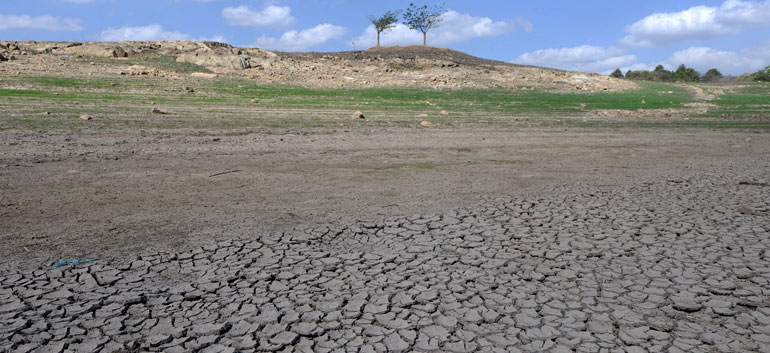The meteorological phenomenon known as “El Niño” will likely return to Colombia this summer and last until next year, local media reports.
In a statement released on June 26, the World Meteorological Organization (WMO) predicted the full effects of the weather phenomenon, which can cause extreme rain and drought, will likely be felt starting in the early fall.
“Climate model outlooks suggest a 60% likelihood for El Niño to become established between June and August, rising to 75-80% for the October to December period,” read the WMO statement.
El Niño Forecast
El Niño is a weather phenomena caused by rising sea surface temperatures off Colombia’s Pacific coast, causing temperature fluctuations, severe dryness, and flooding in different regions.
Colombia’s Institute of Hydrology, Meteorology and Environmental Studies (IDEAM) reported that in the country there exists a probability close to 73% that the initial phase of El Niño has begun to materialize, and that the climax will occur with a probability of 83% in the last trimester of the year, Semana reported.
MORE: Colombia will experience El Niño well into 2015: govt agency
The return of El Niño has been tracked by numerous countries in Latin America. Experts from the Regional Center of Climate for West South America (CRC-OSA), composed of metrological entities from Bolivia, Chile, Colombia, Ecuador, Peru and Venezuela, concluded that since April 24th the Pacific Ocean has presented precursory conditions for El Niño, according to their official website.
The probability that El Niño will start in mid-2014 and last until the beginning of 2015 has also risen, Semana reported.
The WMO report stated that while tropical Pacific Ocean surface temperatures “have reached El Niño’s thresholds and exceeded them in the far eastern portion of the basin,” the weather phenomenon has not yet begun in full force. Models show that from early June onwards, the central and eastern tropical Pacific Ocean will continue warming until the end of the year.
Information also points to a “moderate strength El Niño,” contrary to previous reports that had stated a stronger El Niño this year, the WMO reported said.
Effects in Colombia
Colombia’s internal climate diversity means El Niño will carry different implications for different parts of the country, with some areas likely to experience heavy rainfall while others will have to prepare for the prospect of severe dryness and possible drought. The phenomenon is coming at a time when much of the country is already recovering from severe weather.
Earlier this year, heavy rainfall caused severe flooding in 23 states in Colombia.
MORE: Torrential rains have killed 7 in Colombia; 23 states on high alert
The east and northeast of the country, meanwhile, experienced a three month drought that led to rampant forest fires in some parts, widespread wildlife death in others, and acute water shortages in certain urban centers.
MORE: Forest fire rages for 2 days Colombia’s north-east
There are fears that eastern Colombia in particular will not be able to recover in time to deal with another prolonged dry spell, as authorities ignored warnings prior to the most recent drought.
MORE: 20K animals dead in east Colombia drought
The WMO recommends that Colombia and other countries that will similarly be affected by El Niño take preliminary precautions now to reduce the damage, but the national government has not yet announced any large-scale plans or efforts.
Businesses in Colombia and throughout Latin America have started to prepare for the fiscal risks that El Niño may bring. “Latin America has reduced their fiscal deficits and their financial necessities,” said Gersan Zurita, vice president of Moody’s Investors Service according to Peru’s El Comercio.
“Access to funds to combat heavy rains, as well as bilateral and multilateral loans, will help these nations overcome damage to infrastructure and the costs of other emergencies that may arise from El Niño,” said Zurita.
Sources
- El fenómeno de El Niño vuelve a Colombia (La Semana)
- WMO El Niño/La Nina Update (WMO official website)
- Efectos Climáticos Globales De El Niño (CRC-OSA official website)
- “Latinoamérica está mejor preparada para enfrentar El Niño” (El Comercio)


